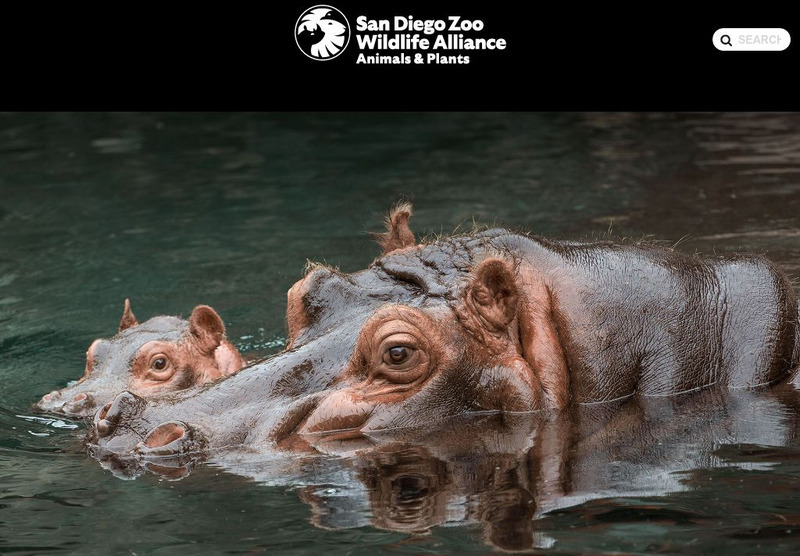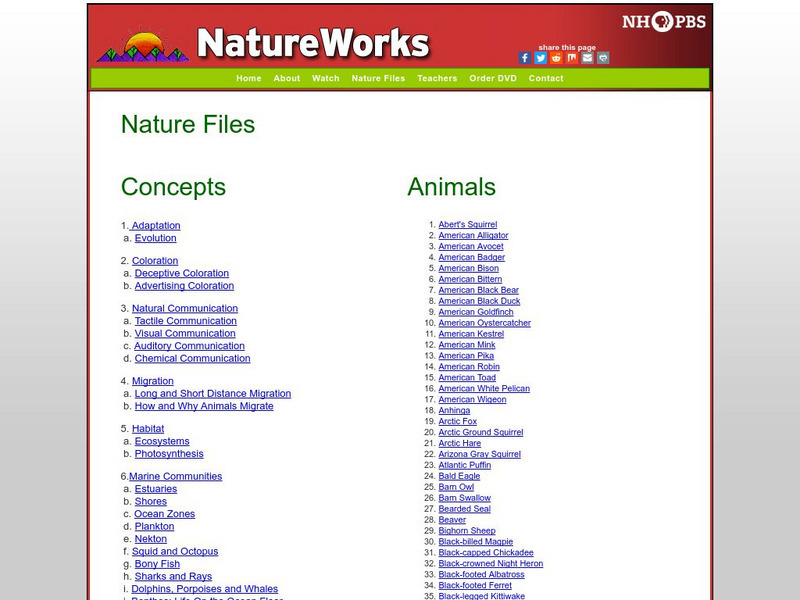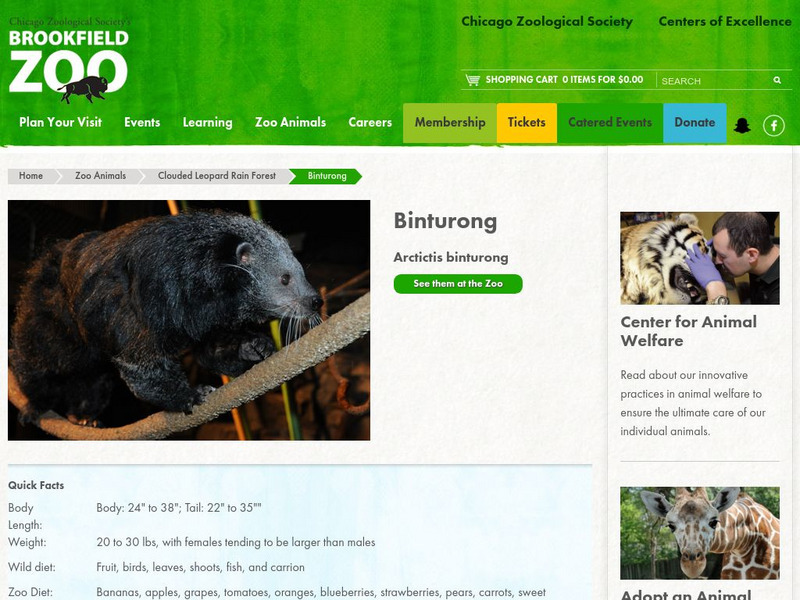Smithsonian Institution
National Museum of Natural History: Zebra
Brief overview of the zebra and accompanying photos demonstrate the physical adaptations that allow this animal to survive in its habitat.
Smithsonian Institution
National Museum of Natural History: Hall of Mammals: Red Panda
Brief overview of the red panda and accompanying photos demonstrate the physical adaptations that allow this animal to eat and survive in its habitat.
Smithsonian Institution
National Museum of Natural History: Hall of Mammals: Beaver
A brief overview of the beaver and accompanying photos demonstrate the physical adaptations that allow this animal to eat and live in its habitat.
Smithsonian Institution
National Museum of Natural History: Hall of Mammals: Bison
Brief overview of the bison and accompanying photos demonstrate the physical adaptations that allow this animal to survive in its habitat.
Smithsonian Institution
National Museum of Natural History: Hall of Mammals: Hippopotamus
Brief overview of the hippopotamus and accompanying photos demonstrate the physical adaptations that allow this animal to survive in its habitat.
Smithsonian Institution
National Museum of Natural History: Hall of Mammals: Jaguar
Brief overview of the jaguar and accompanying photos demonstrate the physical adaptations that allow this animal to hunt for its prey.
Smithsonian Institution
National Museum of Natural History: Hall of Mammals: Giant Panda
Brief illustrated overview of the giant panda and an accompanying video demonstrate the physical adaptations that allow this animal to eat and why it has become an endangered species.
Smithsonian Institution
National Museum of Natural History: Hall of Mammals: White Tailed Deer
Brief overview of the white-tailed deer and accompanying photos demonstrate the physical adaptations that allow this animal to mate and feed their babies.
Lincoln Park Zoo
Lincoln Park Zoo: Bactrian Camel
Get the facts about the Bactrian Camel. Information includes where it lives in the wild, its niche environment, what its diet consists of, what it looks like as well as its reproduction habits.
Other
Manitoba Model Forest Network: Wonderful World of Boreal Woodland Caribou [Pdf]
This 60-page Science unit on Manitoba's boreal woodland caribou looks at all aspects of this animal, for example, a day and a year in its life, its habitat, diet, how it maintains its population, adaptations it has made, and threats it...
San Diego Zoo Global
San Diego Zoo: Hippotpotamus
This resource presents detailed information about the hippotpotamus, including several photos and an audio clip.
PBS
Nh Pbs: Nature Works: Nature Files
Resources to accompany a 16-episode science series created to help young minds better understand how plants and animals interact with their environment. A fantastic resource for elementary science teachers that includes state standards...
BBC
Bbc: Nature Wildfacts: Hippopotamus
This resource provides detailed information about hippopotamuses.
PBS
Nature: Cheetah
What are some of the cheetah's distinctive characteristics? Come and check out this resource featuring fun facts and information about the cheetah.
San Diego Zoo Global
San Diego Zoo: Birds
This resource provides detailed information about birds, as well as several pictures.
BBC
Bbc: Nature Wildfacts: Clouded Leopard
To learn more about this particular leopard, examine these photos and study the detailed fact sheet.
Chicago Zoological Society
Chicago Zoological Society: Zoo Explorer: Binturong
Learn all about the binturong by browsing this reference from the Brookfield Zoo. In addition to quick facts and a photo, this animal guide provides information on the appearance, habitat, and eating habits of this well adapted animal.
California State University
Cardboard Tree and Endangered Animals Lesson
Two short art lessons in one that introduce young learners to the idea of extinct animals and habitats. Each student will be creating and painting a habitat and assembling an owl. This could be adaptable to use the extinct animal of your...
Smithsonian Institution
National Museum of Natural History: Hall of Mammals: Snowshoe Hare
A brief overview of the snowshoe hare and accompanying photos demonstrate the physical adaptations that allow this animal to survive in its habitat.
Smithsonian Institution
National Museum of Natural History: Hall of Mammals: Bongo
Brief illustrated overview of the bongo that demonstrates the physical adaptations that allow this animal to live and move in its habitat.
Smithsonian Institution
National Museum of Natural History: Hall of Mammals: Black Bear
Brief overview of the black bear and accompanying photos demonstrate the physical adaptations that allow this animal to eat and survive in their habitat.
Smithsonian Institution
National Museum of Natural History: Hall of Mammals: Canadian Lynx
A brief overview of the Canadian lynx and accompanying photos demonstrate the physical adaptations that allow this animal survive in its habitat.
Chicago Zoological Society
Chicago Zoological Society: Zoo Explorer: North American River Otter
Familiarize yourself with the North American river otter by browsing this brief overview from the Brookfield Zoo. This animal guide includes quick facts and information on the appearance, habitat, social and eating habits, and other...









